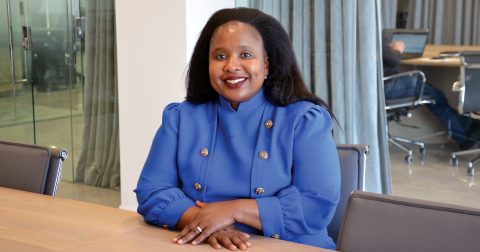Sunday Times Skills
Local Producers Need To Wise Up
Local producers must be trained in aspects such as standards and regulations as they embark on production to ensure safety efficacy and “fit-for-purpose” approval of their products, says the South African Bureau of Standards.
“Standards provide the benchmark minimum fit-for-purpose requirements and create confidence in target markets,” says Bjorn Buyst, head of Marketing, Communications and Public Relations at the South African Bureau of Standards.
“A local producer wishing to export their produce to foreign markets needs to understand how to navigate the requirements of the standards that may be imposed by players in those markets. Equally, they need to know about and comply with any legislation that may be applicable in those markets”, he says.
Producers need to be trained in areas such as standards, which are developed primarily to address matters of health, safety and the protection of the environment. At times, standards are also developed for the protection of property, especially as it relates to fire and structural aspects. Compliance with standards gives assurance to the users of a product or service that such a product is safe or the service is reliable.
Unfortunately, some exporters are often unable to access the training that prepares them for the market. “It could be due to a lack of awareness of the relevant training required, as well as not having the funding to enrol,” says Buyst.
A step in the right direction
The South African Footwear and Leather Export Council (SAFLEC) is committed to helping local producers upskill. The council also helps to develop job creation and business growth by encouraging the internationalisation of South African business.
SAFLEC executive director Nerisha Jairaj says that the council runs a range of courses to assist players in the sector. They offer courses and workshops in collaboration with Productivity SA to help manufacturers improve efficiencies within their factories and production lines. Training also addresses inventory management, quality and waste utilisation, using a bottom-up approach to infuse the learning throughout the organisation.
Compliance training in conjunction with partners such as Bureau Veritas, SGS and USAID is in place to ensure companies understand the requirements to enter different markets. Complementing this is training to meet the requirements for AGOA, SADC and EU certification.
SAFLEC has partnered with Absa and Standard Bank on financial training to explain the value of services such as dollar accounts and how local producers can protect them from exchange range fluctuations. Also part of the training is advice on key documentation such as letters of credit and how to register with SARS as an exporter. Legal training entails aspects such as sales contracts, how to patent, brand and licence products, and how to avoid infringing on other brands.
Collaboration is key. All the training courses are developed in conjunction with partners so that their expertise is highlighted and presented in a way that is digestible to exporters.
Global competitiveness
For South African producers to stay competitive, they need to monitor trends and orient their designs in line with what is currently trending globally, says Jairaj. SAFLEC negotiated a one-week design and trend workshop with Arsutoria, a world-leading school for fashion training, focused on the design and patternmaking of shoes and bags.
Previously, training was conducted physically or virtually, but in the past year, all training has been run virtually as a way to continue delivering much-needed knowledge during the pandemic. To maintain momentum, SAFLEC created an interactive virtual tradeshow platform so that local producers can stay visible and showcase their products or service in front of a worldwide audience without the often prohibitive cost of overseas travel.
Training interventions are popular with local manufacturers, says Jairaj. “SAFLEC is committed to ensuring that the training is inclusive, with a strong emphasis on empowering black and women producers. Currently, over 80 per cent of attendees fall under the SMME and BEE bracket, with only 5 to 10 per cent being large and established businesses.
“With all the investment in training over the past three years, we are seeing an evolution of what is coming out from the industry,” concludes Jairaj.






 Sign-up and receive the Business Media MAGS newsletter OR SA Mining newsletter straight to your inbox.
Sign-up and receive the Business Media MAGS newsletter OR SA Mining newsletter straight to your inbox.